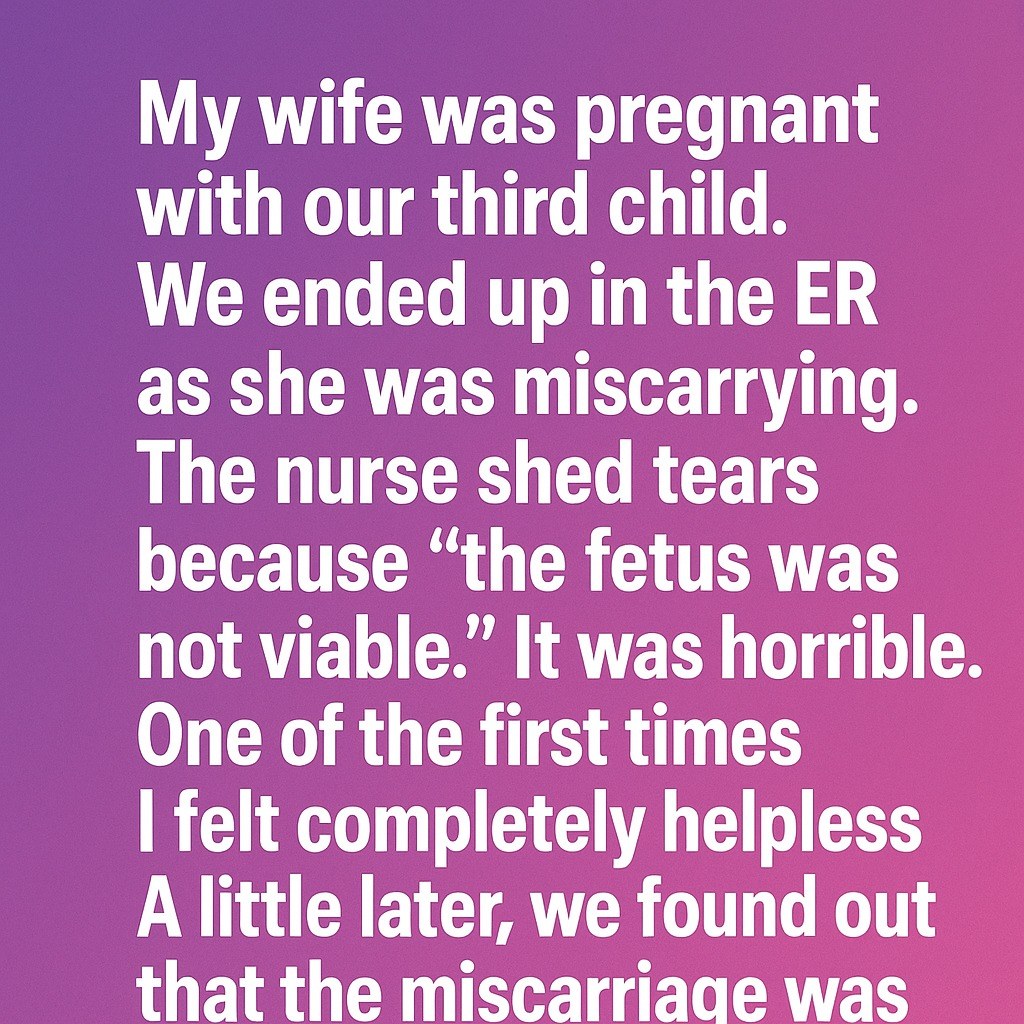My wife was pregnant with our third child, and we were overwhelmed with excitement and hope. But what should have been a time of joy quickly turned into one of the darkest nights of our lives. She began to miscarry, and we ended up in the ER, the sterile lights of the hospital ceiling feeling harsh against our grief. The nurse who attended us shed tears alongside us, her voice gentle and trembling as she explained that the pregnancy wasn’t viable. It was heartbreaking to hear, a cruel and unexpected blow that left me feeling entirely powerless. For the first time in my life, I couldn’t shield the person I loved most from suffering, and the helplessness settled over me like a heavy fog.
In the days that followed, we clung to each other as though holding on could somehow make the pain lighter. We cried together, prayed together, and often stayed awake late into the night talking about every emotion that surged within us. There were moments of anger, moments of despair, and moments where silence itself seemed unbearable. The house, once lively and warm, now felt hollow, each corner echoing our grief. But gradually, small sparks of life began to pierce the shadow. The laughter of our two children became a balm for our bruised hearts. Close friends offered their support — some with words, others with quiet gestures of presence that said more than any sentence ever could. Even sitting side by side, holding hands without speaking, brought a strange, fragile comfort.
With time, we began to realize that the miscarriage, though devastating, was not the end of our story. It became a part of a larger journey, a difficult chapter that taught us lessons we could never have learned otherwise. Slowly, hope returned. We allowed ourselves to dream again, to imagine trying once more when we were ready. The pain didn’t vanish, but it softened enough to let gratitude and love grow in its place. We learned to cherish the family we had — not just our children, but each other — and to recognize the quiet strength we had discovered within ourselves.
Looking back now, I see that moment not only as a personal tragedy but also as a turning point that reshaped how we approach life, loss, and love. It instilled in us a compassion for others who carry invisible burdens, a reminder that struggles often go unseen but are deeply felt. We understood, painfully yet profoundly, that love is most powerful when tested, and that holding on to one another is the truest form of protection. Though we lost a piece of our dream that day, we gained clarity about what it means to be present, to cherish each heartbeat in our home, and to embrace the fragility and beauty of life, even in its most painful moments.
